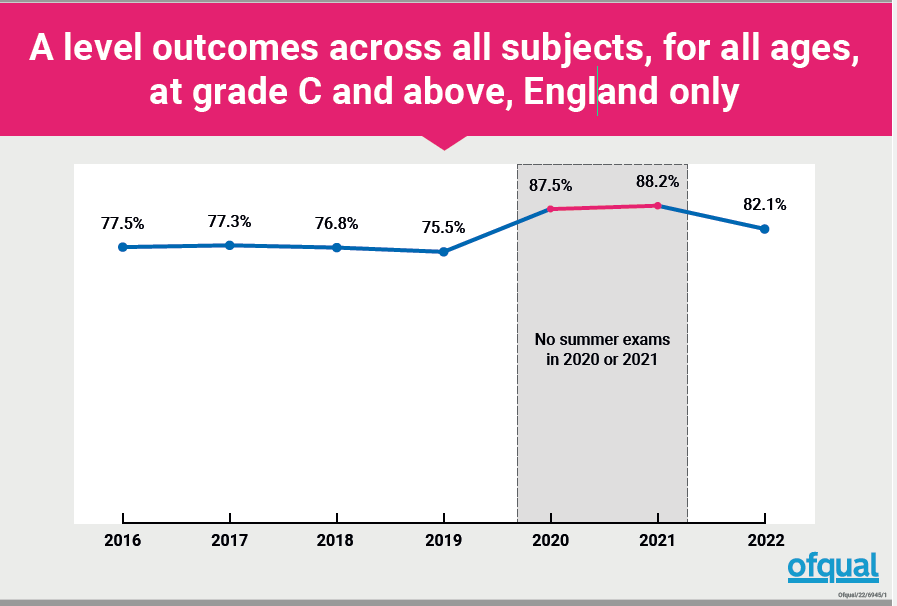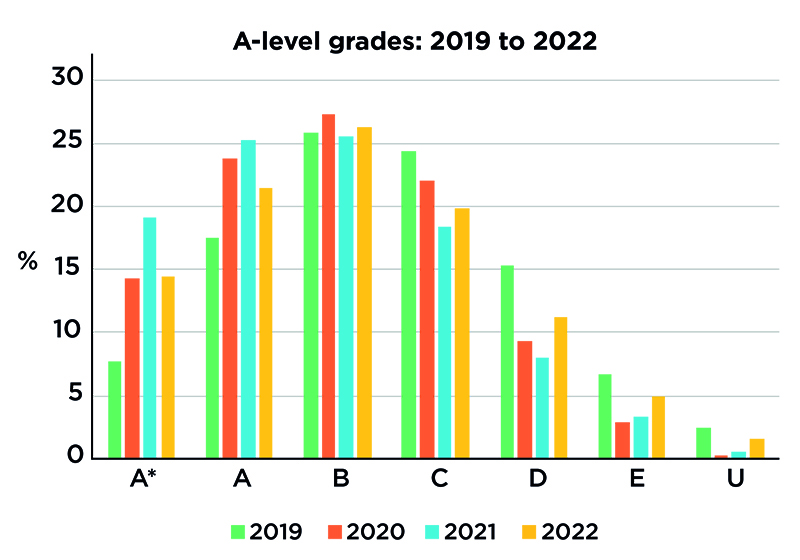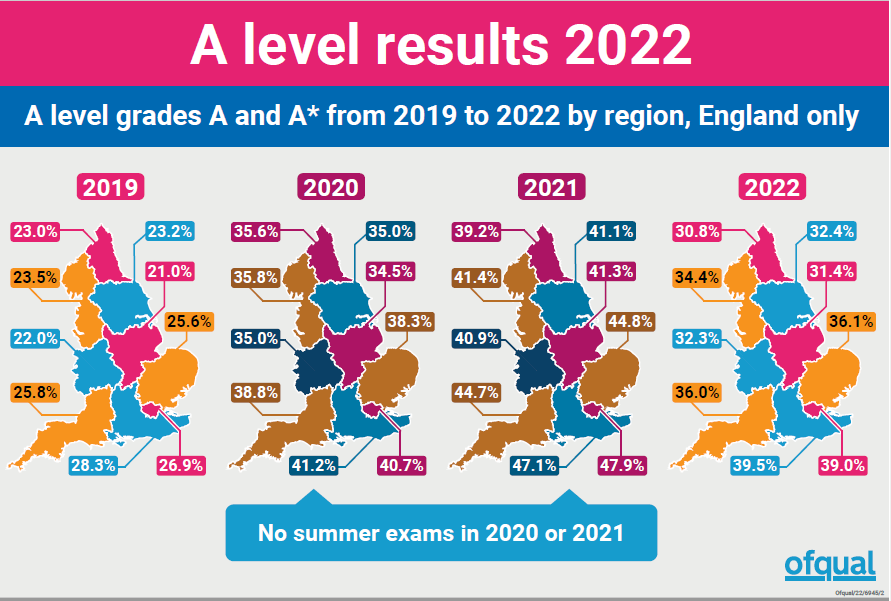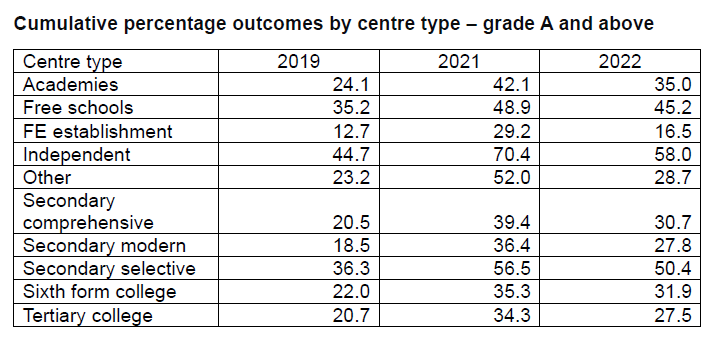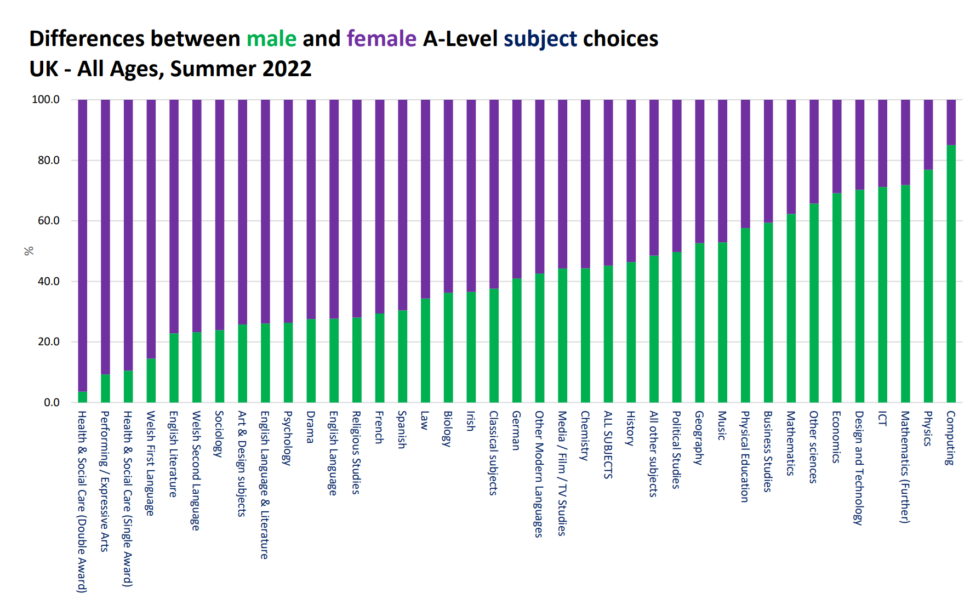The awarding body for the new health and science T Level has committed to a “support delivery plan” for next year after disheartened students said they felt “failed” and “falsely informed” over this summer’s exams following lower-than-expected grades.
But NCFE has ruled out regrading the exams after a petition was launched calling for grade adjustments.
Around 1,600 students across 76 colleges and schools on the two-year health and science T Level – which launched in 2021 – picked up their first-year results last Thursday. It is not clear how many in total reported disappointing grades, but reports have been widespread across the country.
Students who felt the exam did not reflect the content they were taught launched a petition late last week, which has now secured more than 1,000 signatures at the time of publication.
The petition claimed that “the content taught to us was not relevant to the exam in any way,” while the textbook was only available “a few weeks before the exam”.
Campaigners in the petition called for an appeal of the grades.
But NCFE, the awarding body, said it had “no plans” to regrade because assigned grade boundaries took into consideration the difficulty of the exam, the fact that it was the first year of the qualification and the impact of the Covid-19 pandemic.
However, it has pledged a support delivery plan for affected students, explaining that they will have re-sit opportunities in the autumn or in the summer next year.
Students behind the petition claimed that average grades were between an E and a U, but NCFE has ruled out publishing first year exam results publicly because they are “interim, and not necessarily reflective of the students’ final T Level result”.
Aggrieved students said they had been “failed” with those on lower grades fearing that it leaves them unable to get a university spot because many of those require ‘merit’ final grades when the most they can get is a ‘pass’ without a resit.
T Level students receive an overall pass, merit, distinction or distinction* at the end of their course, which is derived from the grades they achieved on the core and the occupational specialism components – those assessed by exams – of the qualification. The core component is marked A* to U. An E is classed as a pass.
Jaz Polman, a student from Havant South Downs College, said she got a U in her science exam and Es in her health exam and employer-set project. She praised the teaching on her course as “probably the best I have ever had” but knew after coming out of the exam her grade would not be as high as expected.
“It was absolutely terrifying to go in and get results,” she said. “Everyone was disappointed and crying.”
Chris Turner, whose son Ben was on the course at Blackpool and The Fylde College, said: “They have come out wondering what’s happened. The results don’t reflect their abilities. Mock end of term tests all indicated As, Bs and Cs but instead got Es and Us”.
A Bury College student who did not wish to be named said: “I feel like we have been guinea pigs set up to fail and I am angry and upset. So much so, that I think the only option for myself now is to drop out.”
Multiple students have reported questions on volcanoes and the insoles of golfers’ shoes as examples which were not applicable to their learning.
The grades have also left some tutors fearing for their jobs and an expected hit on student numbers for this September.
One tutor who taught the T Level but did not wish to be named, is a qualified nurse of 20 years with six years of teaching. He said the problem was not just the exam but “there were issues around the complexity of the questions and depth and breadth they were expected to understand for their age group”.
He said some of the knowledge expected was “a first, second, third year nursing standard.”
He said he raised concerns with NCFE early in the process, which were not heeded.
In addition, he said groups of lecturers had been formed on social media to discuss the problems.
“We are all completely deflated and depressed. Some of the lecturers are worried about their jobs and the impact on them,” he added.
The results have left students and colleges working to form a plan of how to move on. Some are being encouraged to resit the exams in the term ahead, expected sometime in November or December, while others are being encouraged to switch to health and social care BTECs.
Philip Le Feuvre, chief strategy officer at NCFE said the organisation wanted to reassure students there is support available for anyone who isn’t sure about next steps and “we’re committed to working with providers, students and parents in overcoming any challenges they’re facing so that students are well placed to achieve and progress in the coming year”.
Le Feuvre added: “We’re continuously exploring how we can enhance our service to providers to further strengthen their delivery, and, in addition to the support offered to date, we’re currently developing our support delivery plan for 2022-23. This will include an intense focus on teaching areas of challenge identified through this year’s results, and will span a range of channels including webinars, training sessions, and face-to-face support ahead of the autumn resits.”
Students and colleges can request exam scripts to see the marking, and request a review of marking if they wish. NCFE also encouraged them to look at the chief examiner reports on its website ahead of resits.
You can read NCFE’s full statement here.
Several colleges have confirmed grades were lower than anticipated. A spokesperson from Havant South Downs College which had 51 students on the course across its South Downs and Alton campuses said: “We are currently investigating the cause of this, and we have requested copies of the exam papers and student responses in order to determine our next steps.”
A spokesperson from Gateshead College added: “We understand that this is a national issue and we are seeking clarification from NCFE so we can better understand this and provide the right support for students and parents about the options they have going forward.”
Ofqual confirmed it had heard from some students and parents about the issue and recommended students raise their concerns with their provider.
A spokesperson added: “Ofqual takes its role in monitoring how qualifications work very seriously and we are in contact with NCFE.”
Toby Perkins, Labour’s shadow further education and skills minister, said: “It’s a basic requirement that students are examined on what they’ve been taught but between a chaotic government and exam boards they can’t even get that right.
“I have contacted the education secretary, and put down a written parliamentary question, to ask for a thorough investigation for these findings to be made public in order to reassure learners, their families, teaching professionals and others across the sector.”
The Department for Education has been approached for comment.
T Levels are the government’s flagship new post-16 qualifications, designed to be the technical equivalent of A-levels.
The first wave of T Level students completed their studies this year in three subjects and received their full results last Thursday. These subjects, which started in September 2020, were: education and childcare; design, surveying and planning for construction; and digital production, design and development.
The health and science T Level was added to the second wave, which began teaching in September 2021 and is due to complete in the summer of 2023.


